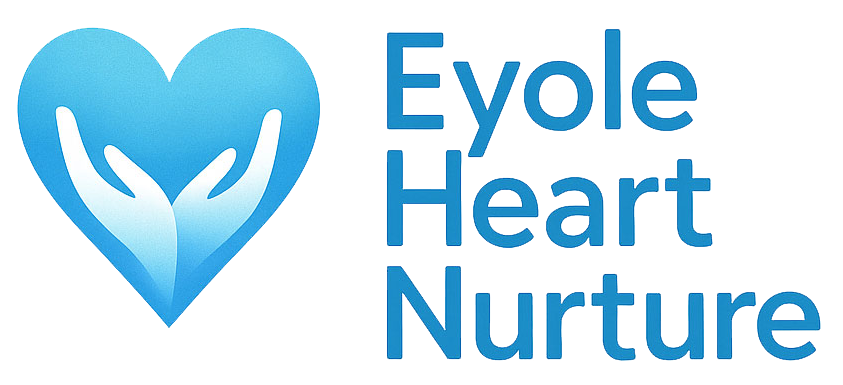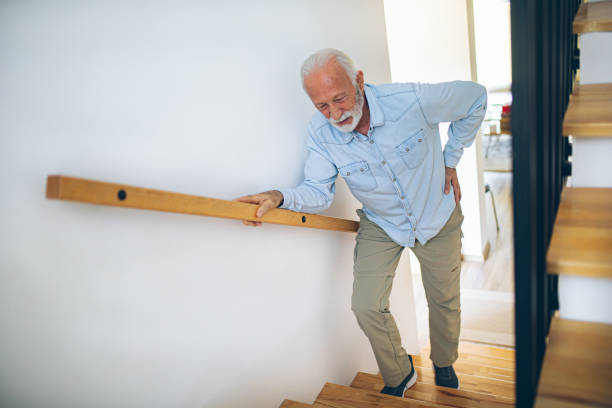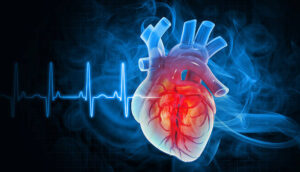“The sudden loss of my sister to a heart attack at 62 left me pondering how inactivity could cause heart problems without warning. As I sought to safeguard my own heart, I wondered if my sedentary life was inviting danger”, Emmanuel recalls.
Inactivity is a hidden foe. Experts explain that less active, less fit persons have a 30-50 percent greater risk of developing high blood pressure, a condition that silently weakens the heart. This revelation stirred up Emmanuel’s soul.
The Weight of Inactivity
“My sister was very active with farm work, but as years passed, fatigue set in, and simple tasks left her breathless. She experienced occasional chest tightness and shortness of breath, a sign of what happens when the heart lacks regular activity”, Emmanuel adds.
Research reveals that physical inactivity is a significant risk factor for CVD itself, ranking alongside smoking and high cholesterol, with twice as many adults inactive as smokers.
What Does Physical Inactivity Do to Your Heart?
As Emmanuel reflected, he realized his heart couldn’t keep up during exertion, and so, he began gentle walks through the fields. “Starting slow, I felt my energy return, and my heart grew stronger,” he says.
Regular physical activity has been shown to help protect against the first cardiac episode, help patients’ recovery from coronary surgeries, and reduce the risk of recurrent cardiac events.
Next Steps
At Eyole Heart Nurture, our holistic approach, blending movement with mindfulness, can help you regain peace, aligning with Proverbs 4:23: “Above all else, guard your heart, for everything you do flows from it.” We’re committed to your spiritual and physical heart health—take our free heart test today to begin your own journey.
Frequently Asked Questions
What happens to your heart when you are inactive?
When you’re inactive, your heart becomes less efficient, as reduced blood flow and oxygen delivery can weaken its muscles over time. The New York State Department of Health notes that “physical inactivity is a significant risk factor for CVD itself,” leading to increased strain on the heart.
Does inactivity cause heart problems?
Yes, inactivity can contribute to heart problems by increasing risk factors such as high blood pressure and cholesterol. According to PMC, “less active, less fit persons have a 30-50 percent greater risk of developing high blood pressure,” a key contributor to cardiovascular disease.
What will happen to your heart if you don’t exercise?
Without exercise, your heart may weaken, facing a higher risk of conditions like heart disease due to poor circulation and increased fat buildup. The PMC states that “regular physical activity has been shown to help protect against the first cardiac episode,” highlighting the dangers of inactivity.
Can a weak heart become strong again?
Yes, a weak heart can improve with consistent exercise and healthy habits. The PMC suggests that “regular physical activity… helps patients’ recovery from coronary surgeries,” indicating potential for strengthening.
Can being inactive cause heart palpitations?
Inactivity itself may not directly cause palpitations, but it can contribute to conditions like high blood pressure that might trigger them. The New York State Department of Health links inactivity to increased cardiovascular risks, which can include rhythm issues.
What are the risks of being physically inactive?
Risks include higher chances of heart disease, diabetes, hypertension, and premature death. PMC notes that “physical inactivity… ranks similarly to cigarette smoking, high blood pressure, and elevated cholesterol” as a major risk factor.
What is the common health problem associated with inactivity?
A common issue is cardiovascular disease, often worsened by inactivity-related factors like obesity and hypertension, as highlighted by the New York State Department of Health.
How does sitting all day affect your heart?
Sitting all day reduces blood circulation, straining the heart and increasing the risk of heart disease. PMC indicates that “less active, less fit persons have a 30-50 percent greater risk” of related issues.
How many hours a day is considered sedentary?
Sedentary behaviour is typically defined as sitting or lying down for more than 6-8 hours daily with little to no physical activity, according to general health guidelines referenced by the New York State Department of Health.
Can inactivity cause high cholesterol?
Yes, inactivity can lead to higher LDL cholesterol levels by reducing the body’s ability to manage fats. PMC notes that physical inactivity contributes to elevated cholesterol, a key CVD risk factor.
Can walking reduce heart blockage?
Walking can help prevent further blockages by improving circulation and reducing risk factors, though it may not fully reverse existing blockages. The PMC states that “regular physical activity… reduces the risk of recurrent cardiac events”.
Can you reverse the effects of inactivity?
Yes, with consistent exercise and lifestyle changes, some effects like improved heart function can be reversed, as suggested by PMC’s findings on physical activity benefits.





